Currumbin Wildlife Hospital Leading the Way in Urgent Koala Research
Did you know, 60% of Currumbin Wildlife Hospitals koala admissions are due to chlamydia, a bacterial
infection and one of the largest threats posed to the species’ survival?
Donate

Over the past 30 years, there’s been an exponential rise in koala admissions at Currumbin Wildlife Hospital. The hospital treated, rehabilitated, and released almost 500 koalas from South-East Queensland and Northern New South Wales in 2020. 60% of this population were admitted sick and dying from chlamydia. Of the other 40% many had sub-clinical chlamydia, meaning they were becoming sick. In Queensland, New South Wales and the Australian Capital Territory, koalas are listed as endangered, and this status can be attributed to the widespread disease.
In 2020, Currumbin Wildlife Hospital launched the koala vaccine research program and is now vaccinating all koala patients against chlamydia prior to their release back into the wild, signifying a major milestone for the protection of koalas.
Currumbin Wildlife Hospital Senior Vet Dr Michael Pyne is leading the way in this urgent koala research and working hard to prevent the imminent localised extinction of the koala. Dr Pyne has been treating koalas for more than twenty years and believes prevention is better than cure.
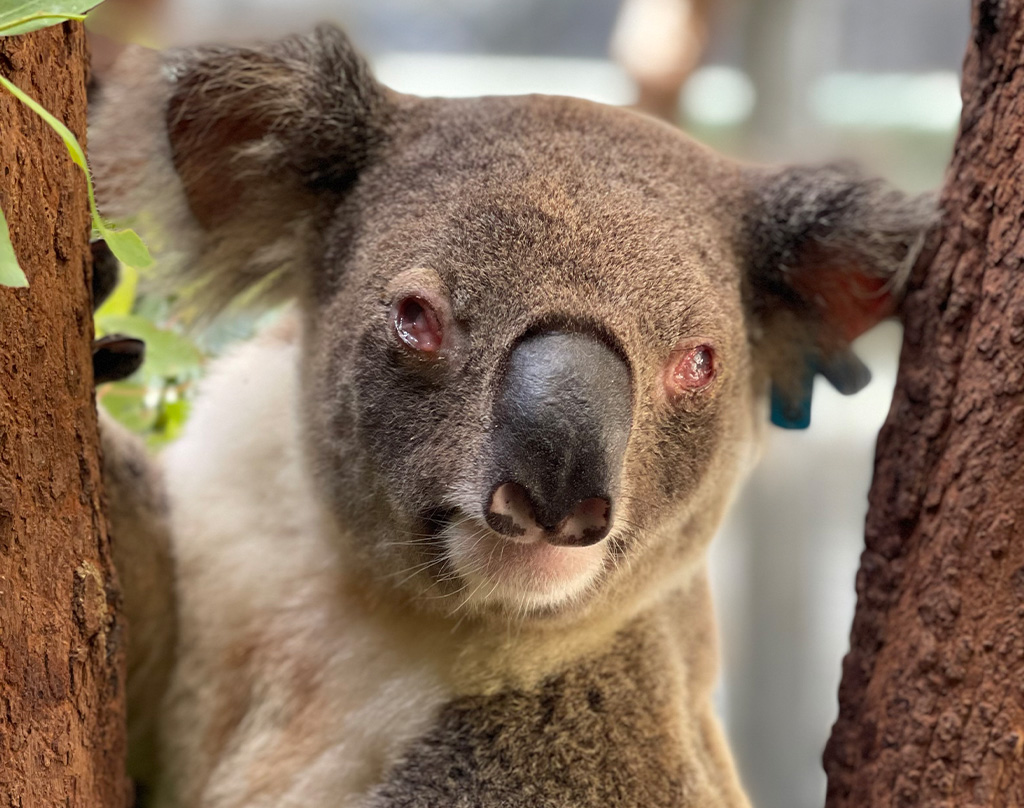
THE DISEASE
Koala chlamydia is a bacterial infection and is one of the leading causes of death for Australian koalas. If left untreated, chlamydia can cause infertility and permanent blindness.
Chlamydia can present in koalas in two ways. The classical presentation is severe conjunctivitis which is spread through close contact and in advanced cases can cause blindness. The other form of chlamydia is a sexually transmitted infection that can cause fatal urinary and reproductive tract disease. Some koalas can have a reproductive chlamydial infection that shows no obvious clinical signs but does prevent them from breeding.
Chlamydia is the most common and well-known disease of wild koalas, estimated to be found in up to 48% of the population, and in some parts of Australia, infection rates are as high as 90%.
Each koala suffering from chlamydia costs Currumbin Wildlife Hospital approximately $7000 to treat with a minimum 4-week course of antibiotics. Many patients require extended hospital stays of up to 10 weeks and often suffer gut complications from antibiotic treatment.
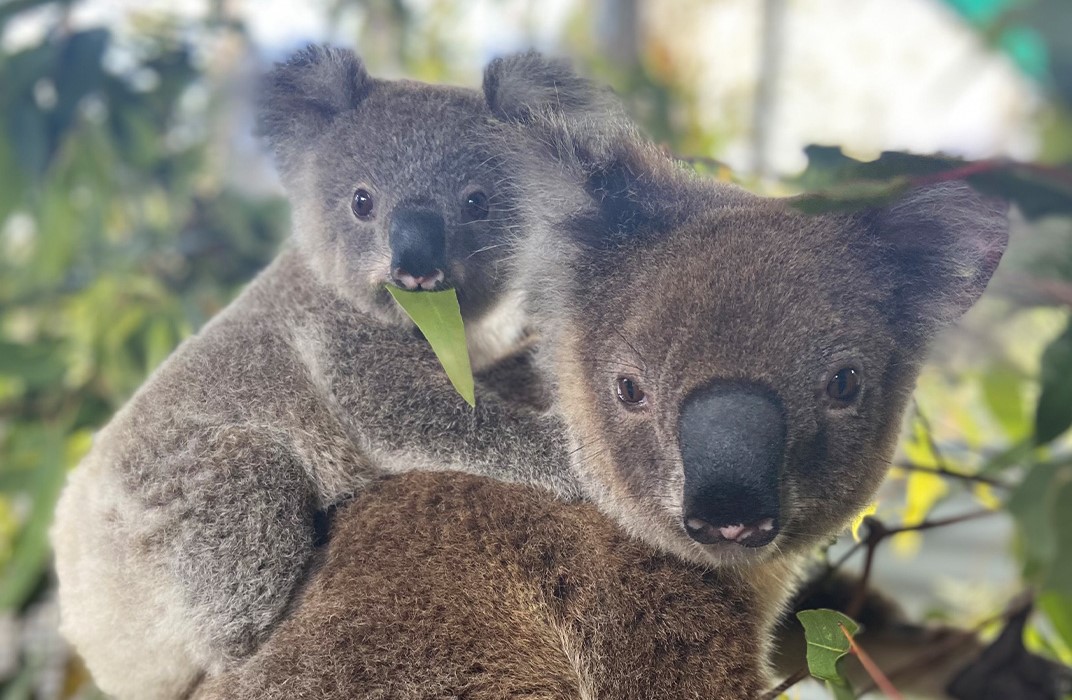
THE VACCINE
Queensland University of Technology (QUT) Professor Ken Beagley led the development of the chlamydia vaccine for koalas which is produced at QUT. The chlamydia vaccine has been in development for many years, but this is the first time the vaccine has been used in a wild area with a highly diseased population.
The group led by Beagley at QUT has developed a vaccine to target chlamydial infection in koalas. The vaccine requires a prime and booster immunisation 30 days apart. Preliminary data suggests this vaccine elicits long-lasting immunity.
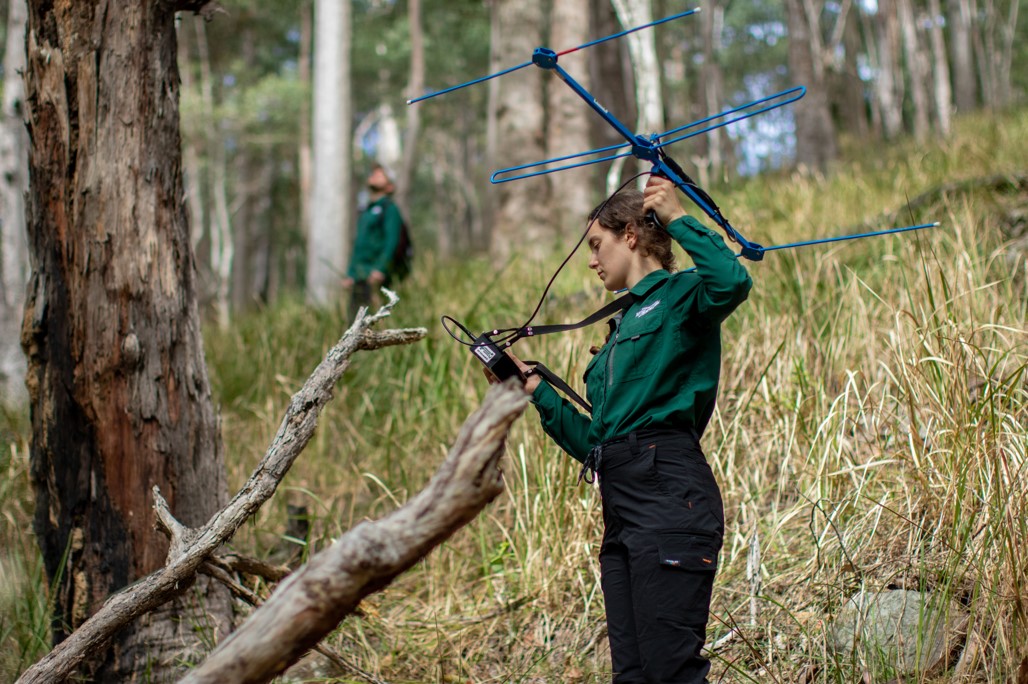
THE RESEARCH TRIAL
The pilot research study has commenced with a test population in Elanora, a neighbouring suburb of Currumbin, and the most diseased population on the Gold Coast. The objective is to capture and vaccinate 10% of the young adult koalas per year from the Elanora population and monitor the koala population and level of chlamydia over the following 5 years. After vaccination, the koalas are released back into the diseased population with a GPS collar to be tracked and tested 6-12 months later to check if they are chlamydia-free. Modelling shows that 10% should be the threshold that will have a significant impact and reduce the overall instances of chlamydia and therefore increase the breeding capacity. Currumbin Wildlife Hospital will be tracking these koalas for up to five years.
The tracking process:
- Capture a healthy koala from Elanora
- Vaccinate the koala initially at CWH and be housed to receive the second vaccine at the Tweed Coast Koala Research Hub
- Release the koala back into the heavily diseased Elanora population with a GPS tracker
- Track the koala’s movement in the wild
- Recapture the koala to assess how the vaccine is working every 6 months for 3 years.
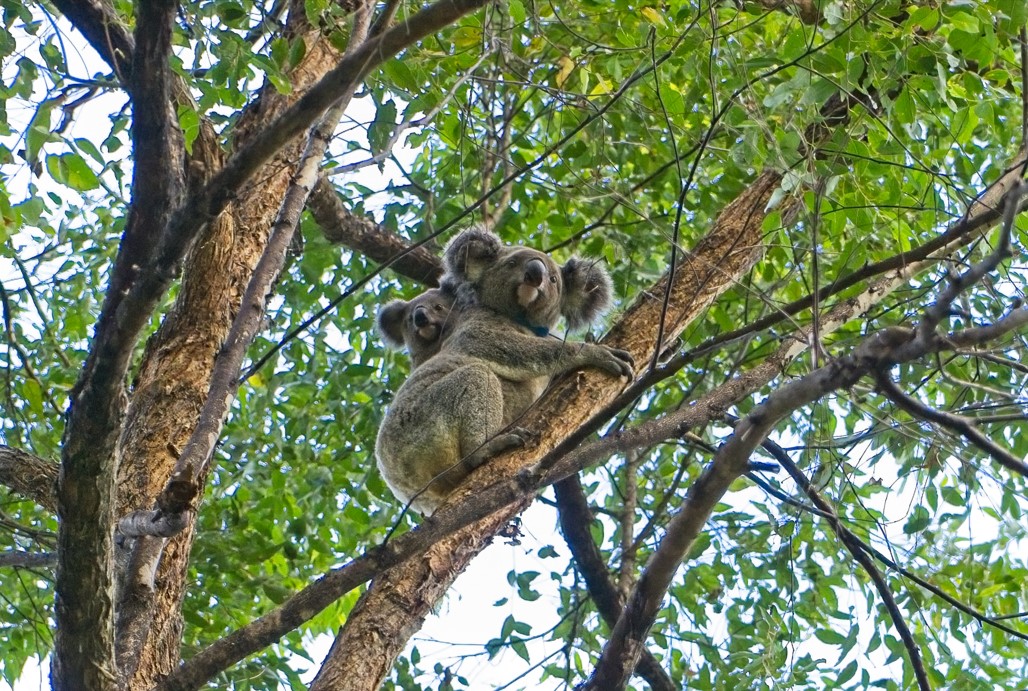
CURRUMBIN WILDLIFE HOSPITAL KOALA VACCINE PROGRAM RESULTS
- Over 400 koalas have been vaccinated – this is ongoing for all koalas admitted to the hospital.
- Currently tracking over 40 koalas in the Elanora region, including 16 joeys.
- 32 joeys have been born in the region, including 4 Grand joeys!
- ALL females and the joeys were disease-negative at 12 months, with some still negative at 18 and 24 months.
- 14 males have also been vaccinated, with results:
- 10 were negative at 12 months
- 3 negative at 6-month check (not had 12 months check yet)
- 1 was positive at 12 months.
- Most young koalas (female and male) remain chlamydia negative at 6, 12 or 24-months post-vaccination.
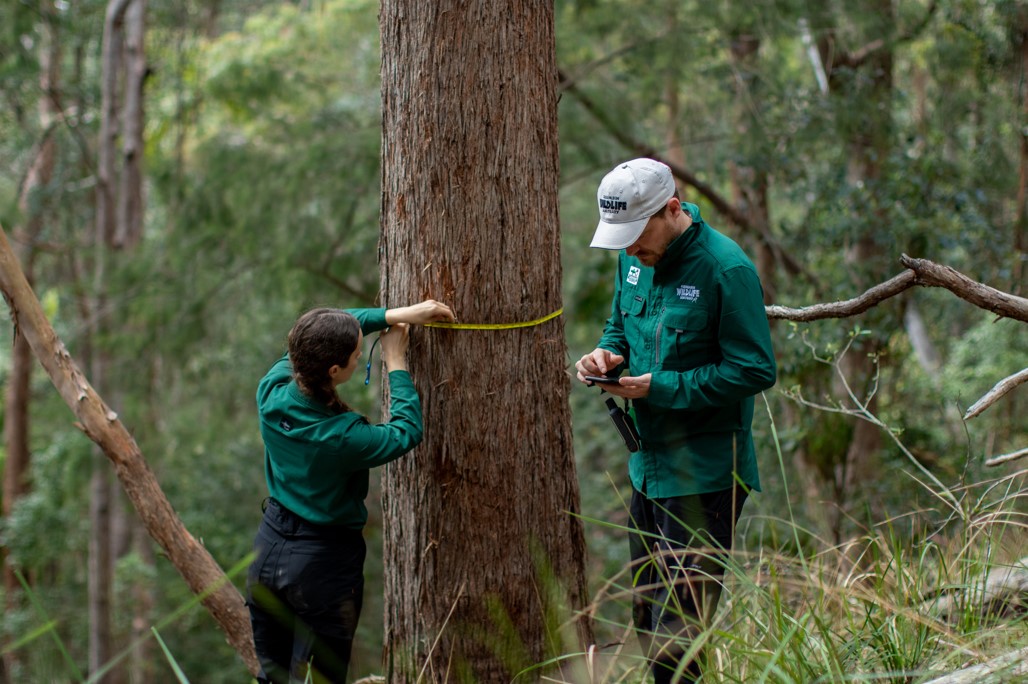
THE CURRUMBIN WILDLIFE HOSPITAL CHLAMYDIA RESEARCH PROGRAM
We have learned so much from the CWH program about koalas, their behaviour, habitat, and the threats they face. The program is ground-breaking in that it involves tagging, physical tracking and a process of re-capture, checking and release over a period of 5 years.
The information from the CWH program will be used to understand the iconic species and prevent disease throughout Australia. It is the lynchpin to prevent the extinction of the koala species.
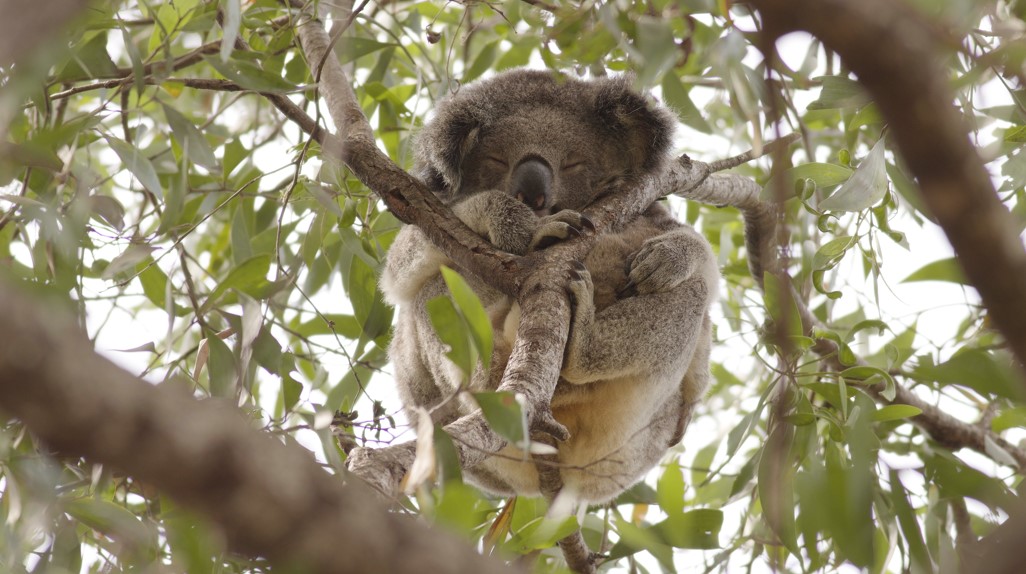
WE NEED YOUR SUPPORT
The goal is to vaccinate every Koala that is admitted to Currumbin Wildlife Hospital for treatment, rehabilitation, and release. It’s hoped this will provide the wild population with lifelong protection against the deadly illness and allow them to produce healthy joeys.
Currumbin Wildlife Hospital’s Chlamydia Vaccine Research Program is still in its early stages, and community support is essential to push forward with this critical work. Chlamydia is a devastating disease and it’s crucial that we move into the prevention space now. The positive news is we have the technology and resources available to make a significant change, it’s just a matter of enough fundraising momentum to save our koalas from extinction.
WE WOULD LIKE TO RECOGNISE THE SUPPORTERS OF THE FIRST STAGE OF THIS PROJECT
- Gold Coast Mayor Tom Tate
- City of Gold Coast
- WWF-Australia
- WildArk
- The Neumann Family
- Rotary Currumbin Coolangatta Tweed
- And generous members of the community
Tweed Coast Koala Research Hub supporters:
- Worldwide Fund for Nature – Australia
- NSW Government
- Tweed Shire Council
